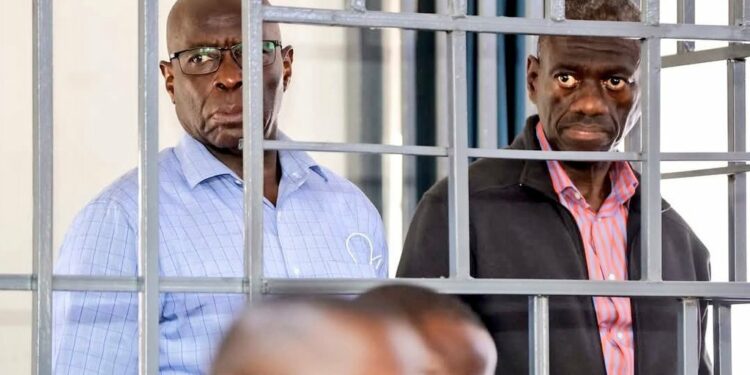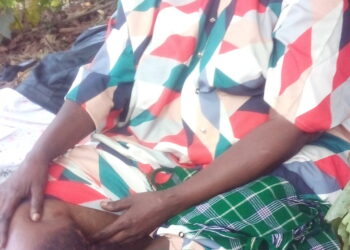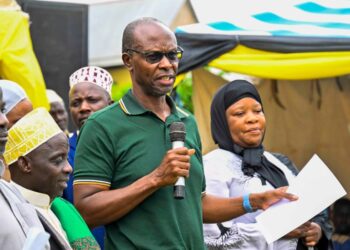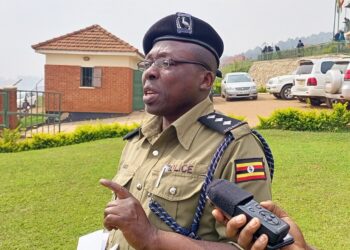The, General Court Martial Chairperson Brigadier Robert Freeman Mugabe has ruled that his court possesses jurisdiction over offenses committed both within Uganda and abroad.
This landmark decision has set the stage for a high-stakes trial involving opposition leader Col. Dr. Kizza Besigye, a man who has long been a thorn in the side of Uganda’s ruling regime. Besigye, alongside his co-accused, Obeid Lutaale Kamulegeya and Captain Denis Oula of the Uganda People’s Defense Forces (UPDF), now faces fresh charges of treachery and conspiracy to undermine the nation’s security.
The charges stem from an alleged covert conspiracy involving international meetings across Geneva, Athens, Nairobi, and several undisclosed locations within Uganda between February 2023 and November 2024. Prosecutors claim that Besigye, Oula, and Lutaale secretly convened these meetings to secure logistical support and identify military targets aimed at destabilizing the UPDF. Such accusations, if proven, could result in the most explosive trial Uganda has witnessed in decades.
The case took a startling turn with the dramatic return of Besigye and Lutaale from Kenya to Uganda. The pair, initially detained in Kenya under suspicion of espionage and other crimes, were transferred back to Uganda under the terms of a security memorandum of understanding (MoU) between the two countries.
Critics have lashed out at this transfer, with many questioning its legality, as no formal extradition request or deportation order was issued. Besigye’s defense team, led by the renowned lawyer Erias Lukwago, has been vocal in challenging the jurisdiction of the General Court Martial to try offenses committed on foreign soil, emphasizing that international law mandates extradition procedures for such cases.
But Brigadier Mugabe was unshaken in his ruling. On Tuesday morning, he boldly declared that the UPDF Act grants the Court Martial sweeping powers to prosecute offenses beyond Uganda’s borders, a decision that has sent shockwaves through legal and political circles. “The accused will stand trial, and they must take a plea,” Mugabe ruled, dismissing the objections raised by Besigye’s defense team. The ruling has ignited a fierce debate over the scope of military courts and the potential erosion of civilian judicial rights in Uganda.
Defense Challenges Court’s Legality
Besigye’s legal team has not taken this ruling lying down. Erias Lukwago, along with his colleague Ernest Kalibala, have argued that such charges, particularly those involving foreign locations and civilians, should be handled by Uganda’s civilian courts, not a military tribunal. The lawyers contend that the Court Martial’s involvement risks undermining the impartiality of the justice system, as the military would effectively serve as judge, prosecutor, and investigator in its own case. Further, they question the legality of a court ruling over the heads of international laws governing extradition and the protection of civilians from military overreach.
Martha Karua, a key figure in the defense team, added fuel to the fire by pointing out the absurdity of a military court claiming jurisdiction over matters involving foreign arms deals and activities outside the UPDF’s traditional territorial domain. “Nairobi is outside the UPDF’s reach, and yet the Court Martial claims authority over events that transpired there,” Karua said in a press conference following the ruling. “This is a gross overstep of military power.”
The case has sparked a global outcry, with international observers and foreign diplomats raising concerns about the broader implications for Uganda’s legal system and its respect for human rights.
Besigye, a long-time adversary of President Yoweri Museveni, has been the target of multiple legal and political battles, including a notorious treason trial in 2006 that saw charges of treason and rape leveled against him, only to be dismissed years later. This latest charge of treachery adds yet another chapter to Besigye’s tumultuous relationship with the government, which many view as politically motivated persecution.
Besigye himself has refused to enter a plea, citing his lawyers’ objections to the court’s jurisdiction. “We are prepared to fight this in the Constitutional Court, where we will challenge the legal basis for this trial,” Besigye declared, vowing to continue his fight against what he deems an unlawful and politically charged process.
As the General Court Martial proceeds with this explosive trial, the nation stands at a crossroads. Will Uganda’s judicial system adhere to international standards of fairness, or will it allow a military court to wield unchecked power over civilians?
The outcome of this case could very well reshape the future of Uganda’s legal framework and its relationship with the international community.
Do you have a story in your community or an opinion to share with us: Email us at editorial@watchdoguganda.com













